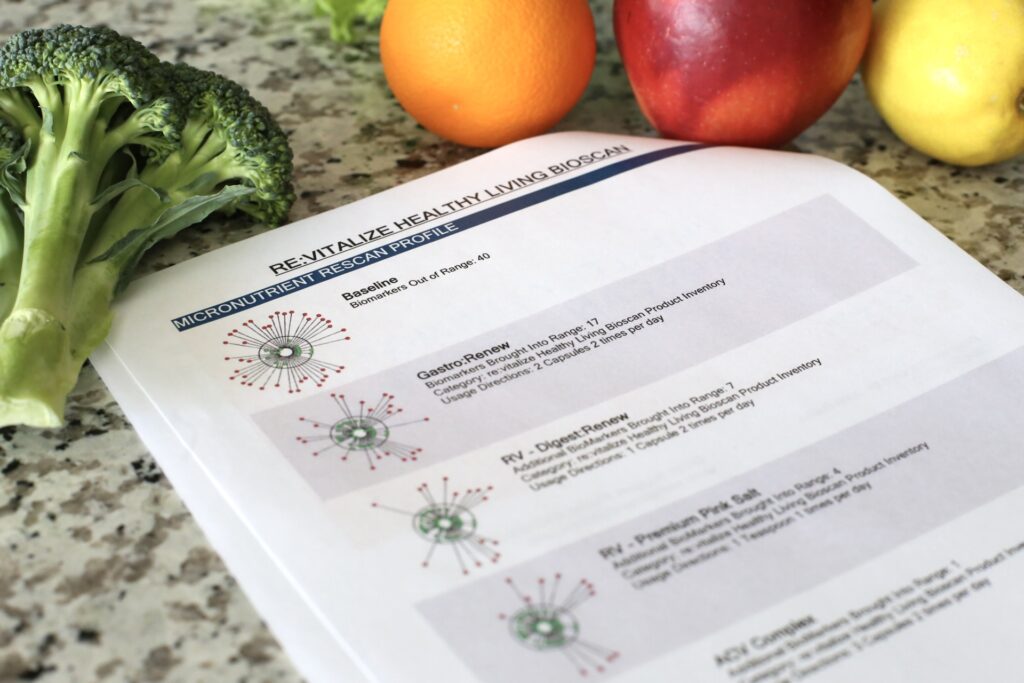Executive Summary
- High-sugar foods cause you to consume more calories that can end up being stored as fat if you’re not burning them through physical activity.
- Excess sugar contributes to weight gain by slowing our metabolism and causing us to crave more sugary foods.
- Eating too much can cause insulin resistance and lead to chronic diseases like type 2 diabetes.
- Research shows that excess sugar intake may slow our metabolism and increase the chance of metabolic disease, which can lead to weight gain.
If you’ve been struggling to lose weight, you’ve probably started pointing fingers at all the potential reasons why. One of the first places to point is at sugar. So, does sugar make you fat?
The narrative that sugar is evil isn’t entirely true. In fact, our bodies rely on sugar in the form of glucose to keep our brains functioning and run our important internal systems. However, there is truth that too much could be the culprit behind your slowed weight loss progress. Moderation is the key to everything, and in excess, sugar is one of the biggest contributors to weight gain.
Research shows that excess sugar can take a significant toll on your health and can derail weight loss progress by slowing your metabolism and causing you to overeat. Being more mindful about your intake and replacing sugary foods with more nutritious whole foods can do wonders for your weight loss journey.
Does Sugar Make You Gain Weight?
Sugar can make you gain weight if you have too much. It’s in many of the everyday foods we eat, which is okay when we consider that the body relies on it to function. However, in excess, it contributes to weight gain in several ways.
1. Caloric Intake
Calories are a form of fuel for your body—when you consume sugar, its molecules enter the mitochondria of your cells and are burned to produce energy. Weight gain happens when you consume more calories than you use through physical activity, and your body has no way to use them, so it stores them as fat.
One gram of sugar contains about four calories. When you eat foods that are high in sugar, the calories add up quickly. Even worse, these foods are full of empty calories, which are those that offer little to no nutritional value but still contribute to your daily calorie intake.
Some of the most common examples of empty calories include:
- Sugary drinks – Some cans of soda contain as much as 46 grams of sugar, adding up to 184 calories on their own. Energy drinks and processed fruit juices are part of the group, too. Although they taste good, they don’t provide much nutritional value at all. Over the course of a day, drinking empty calories piles up fast.
- Solid fats – Some fats, like polyunsaturated and monounsaturated fats, are healthy. However, saturated fats are empty calories, bad for your health, and bad for weight loss goals. Minimize your intake of solid fats like butter, shortening, and beef fats.
- Added sugars – Added sugars sneak their way into so many processed foods and snacks, and even in staples like bread. When you eat a lot of these foods, the sugar quickly adds up. It’s a good idea to read ingredient labels and minimize your intake of added sugars like high fructose corn syrup, honey, agave, and fruit juice concentrate.
- Desserts – We hate to say it, but some of our favorite treats, like cakes, cookies, and pastries, are significant sources of empty calories with few nutrients to offer. This doesn’t mean you must exile them from your diet forever, but it does mean you should put a limit on them.
Empty calories often don’t satisfy your hunger because the body still wants important nutrients like protein, vitamins, and minerals. As a result, you end up eating even more. All together, you end up eating more calories than you need, which causes your body to store them as fat.
2. Insulin Resistance
Insulin is a hormone produced by the pancreas to regulate how much sugar is in the blood. It’s responsible for taking the glucose in our blood and distributing it to our muscles and organs to be used for energy.
Insulin resistance, also known as hyperinsulinemia, is a condition where the body is less sensitive to raised glucose in the blood, and the pancreas produces less insulin than is needed to regulate blood sugar.
When we eat, our blood sugar rises as our body digests the foods. Different foods have different impacts on our blood sugar. A food’s glycemic index signals how quickly it will cause your blood sugar to rise. Foods with a high glycemic index—a.k.a. foods with large amounts of sugar—will have a more significant blood sugar spike.
Consistently high blood sugar levels cause our body to become less sensitive to it and produce less insulin even though it’s needed. This is why insulin resistance is the culprit behind diseases like type 2 diabetes. A lack of insulin also causes excess glucose to build up in the blood, causing the body to store it as fat.
Maintaining a healthy diet with foods that are lower in sugar plays an important part in supporting a healthy insulin response and a healthy weight as a result.
3. Appetite & Cravings
The biggest curse of sugar is its ability to make you want more. Eating sugar causes the brain to release dopamine, a chemical linked to pleasure, motivation, and learning. In short, dopamine is responsible for our brain’s reward system.
When we eat sugar, our brains feel rewarded, making us want more. This mechanism is similar to how the brain responds to certain drugs and is the same one responsible for causing food cravings.
By eating sugar, you train your brain to want even more sugar. This cycle becomes a difficult one to break. Sugary foods are usually less filling, which causes you to overeat and take in even more calories.
At re:vitalize, our programs are designed to help you not just lose weight, but keep it off, giving you the tools, support, and lasting habits you need for sustainable results.Sustainable Weight Loss Through Healthy Habits
4. Changes In Metabolism
The metabolism plays a crucial role in weight loss, as it’s responsible for converting the foods we eat into energy. However, consuming excessive amounts of sugar can slow down your metabolism, making your body more likely to store fat.
Research shows that consuming sugars, especially fructose and sucrose, increases the risk of metabolic disease both directly and indirectly. Directly, fructose-containing sugar causes the dysregulation of the metabolism. Indirectly, sugar leads to excess weight gain, which affects your metabolic health.
The process of converting sugar into energy in the mitochondria creates carbon dioxide as a waste product. The more sugar we eat, the greater the buildup of carbon dioxide in the body. This excess carbon can impede the body’s metabolic processes and cause challenges for metabolic repair.
5. Replacing Healthy Alternatives
Your appetite is only so big. By choosing to eat sugary foods, you’re filling yourself up with empty calories that aren’t going to provide you with as much nutrition. This also means you run out of room to include healthier foods in your diet.
As a result, sugar isn’t just hindering your weight loss efforts, but it may be compromising your overall health as well. If you’re too reliant on high-sugar foods, you miss out on other nutrients like vitamins, minerals, and antioxidants.
These nutrients are great for boosting your metabolism and reducing inflammation. In the process, they support a healthy weight, contribute to your overall health, and reduce your risk of chronic disease.
How To Avoid Eating Excess Sugar
It’s unrealistic to completely avoid eating sugar since it’s present in almost everything we eat. The solution doesn’t have to be an unrealistic goal of cutting out sugar entirely. Still, you should try to limit your intake whenever possible.
Take these steps to limit sugar in your diet:
- Read food labels – Sugar is often hiding in plain sight and can be listed as honey, agave nectar, fruit juice concentrate, high-fructose corn syrup, molasses, or malt syrup. Increasing your awareness of these foods helps you choose alternatives.
- Eat nutritious whole foods – Foods that contain fiber, lean protein, and complex carbohydrates keep you full longer. When you’re full and satisfied, you’re less likely to crave sugary foods. Turn to foods like fruits and vegetables, lean proteins, and whole grains to stay satiated.
- Substitute natural sugars – Not all sugars are bad, and fruit is a great example. Natural sugars that come with other nutrients, like fiber and antioxidants, can give your body energy with less of the drawbacks—it’s the added, processed sugars you want to avoid most.
Simply being more conscious of your sugar intake can go a long way toward controlling it. If you’re looking for something sweet, consider choosing a snack that gives you the best of both worlds, like an apple, a banana, or a handful of grapes. Small lifestyle changes will draw you closer to achieving your weight loss goals day by day.
Overcome Sugar-Related Weight Gain with re:vitalize
Excess sugar in your diet could be sabotaging your weight loss goals in several ways, from causing you to overindulge on non-nutritious foods to slowing down your metabolic function. You don’t have to cut out sugar completely, but making more conscious choices about the foods you eat can have a great impact on your weight loss journey.
Sugar is a big contributor to weight gain, but it isn’t the only one. At re:vitalize weight loss and wellness, we take a holistic approach to weight loss. Using our unique BioScan™ technology, we’ll help you identify which foods are optimal for your weight loss and metabolic health. We’ll also provide you with a web of support and accountability to help you stay on track toward your goals.
You won’t be miserable either—we encourage you to eat, and we’ll provide over 80 delicious and nutritious recipes to try. We encourage our members to update us on their progress so that they don’t feel hungry or lack energy during the process.
Schedule a 1:1 consultation with us today, and we’ll discuss how our programs will support you and your goals.



